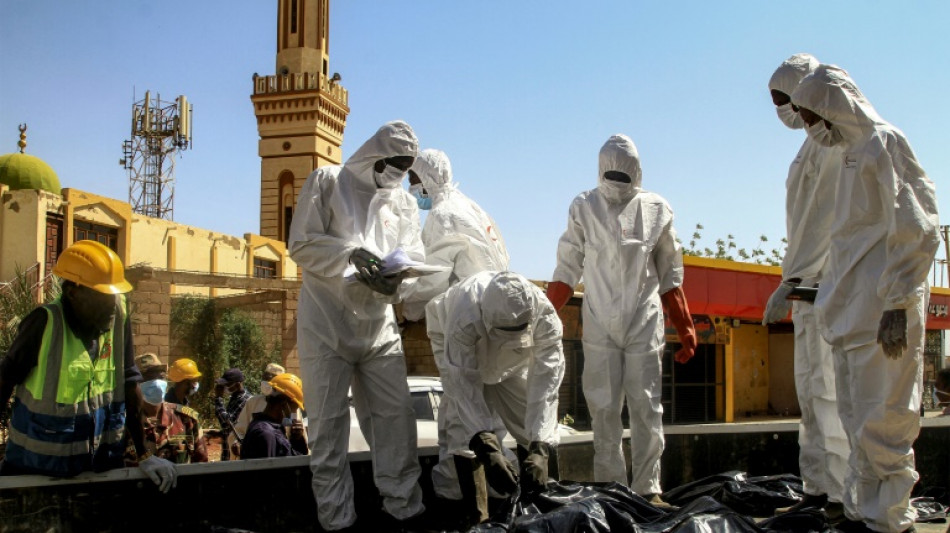
-
 Sophie Adenot, the second French woman to fly to space
Sophie Adenot, the second French woman to fly to space
-
Alleged rape victim of Norway princess's son says she took sleeping pills

-
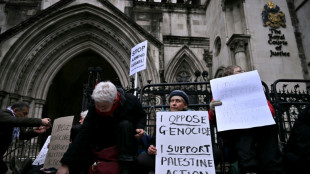 Activist group Palestine Action wins legal challenge against UK ban
Activist group Palestine Action wins legal challenge against UK ban
-
Driven by Dhoni, Pakistan's X-factor tweaker Tariq targets India

-
 Davidson set to make history as Ireland seek to rebound against Italy
Davidson set to make history as Ireland seek to rebound against Italy
-
Europe defends NATO, US ties at security gathering
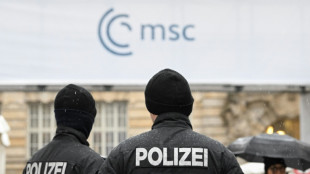
-
 China's fireworks heartland faces fizzling Lunar New Year sales
China's fireworks heartland faces fizzling Lunar New Year sales
-
Bangladesh's Yunus 'banker to the poor', pushing democratic reform
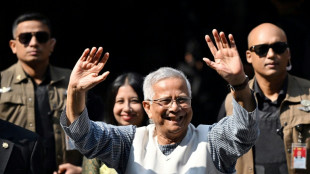
-
 Cracknell given Six Nations debut as Wales make changes for France
Cracknell given Six Nations debut as Wales make changes for France
-
L'Oreal shares sink as sales miss forecasts

-
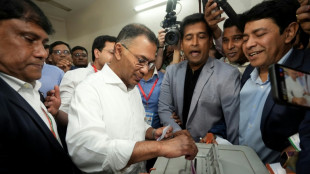 Bangladesh nationalists celebrate landslide win, Islamists cry foul
Bangladesh nationalists celebrate landslide win, Islamists cry foul
-
Thai PM agrees coalition with Thaksin-backed party

-
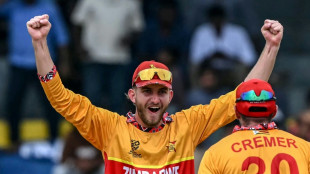 Zimbabwe pull off shock win over Australia at T20 World Cup
Zimbabwe pull off shock win over Australia at T20 World Cup
-
Merz, Macron to address first day of Munich security meet
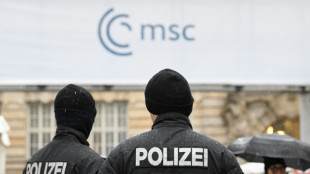
-
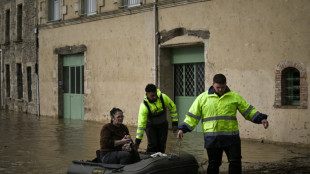 Three dead, many without power after storm lashes France and Spain
Three dead, many without power after storm lashes France and Spain
-
Bennett half-century as Zimbabwe make 169-2 against Australia
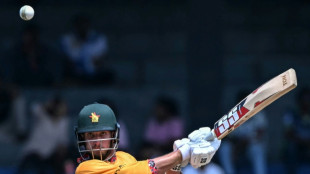
-
 Asian stocks track Wall St down as traders rethink tech bets
Asian stocks track Wall St down as traders rethink tech bets
-
'Weak by design' African Union gathers for summit
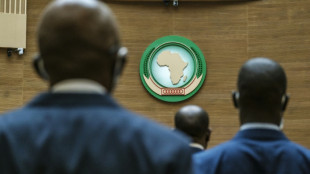
-
 Nigerian conservative city turns to online matchmaking for love
Nigerian conservative city turns to online matchmaking for love
-
Serb-zero: the 'iceman' seeking solace in extreme cold

-
 LeBron James nabs another NBA milestone with triple-double in Lakers win
LeBron James nabs another NBA milestone with triple-double in Lakers win
-
Hundreds of thousands without power after storm lashes France
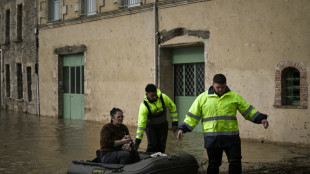
-
 US Congress impasse over migrant crackdown set to trigger partial shutdown
US Congress impasse over migrant crackdown set to trigger partial shutdown
-
AI's bitter rivalry heads to Washington

-
 South Korea hails 'miracle' Choi after teen's landmark Olympic gold
South Korea hails 'miracle' Choi after teen's landmark Olympic gold
-
England seek statement Six Nations win away to Scotland

-
 Trent return can help Arbeloa's Real Madrid move forward
Trent return can help Arbeloa's Real Madrid move forward
-
Battling Bremen braced for Bayern onslaught

-
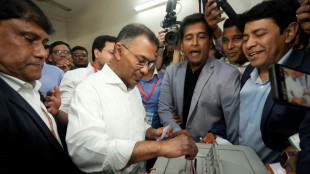 Bangladesh nationalists claim big election win, Islamists cry foul
Bangladesh nationalists claim big election win, Islamists cry foul
-
Tourists empty out of Cuba as US fuel blockade bites
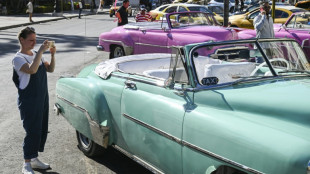
-
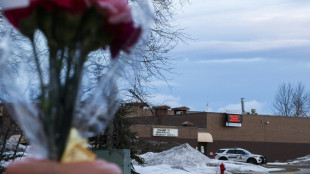 Tearful Canadian mother mourns daughter before Carney visits town shaken by killings
Tearful Canadian mother mourns daughter before Carney visits town shaken by killings
-
Italy dream of cricket 'in Rome, Milan and Bologna' after historic win

-
 Oscars museum dives into world of Miyazaki's 'Ponyo'
Oscars museum dives into world of Miyazaki's 'Ponyo'
-
Dieng powers Bucks over NBA champion Thunder

-
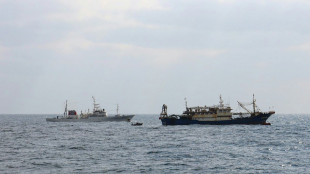 Japan seizes Chinese fishing vessel, arrests captain
Japan seizes Chinese fishing vessel, arrests captain
-
Bangladesh political heir Tarique Rahman poised for PM
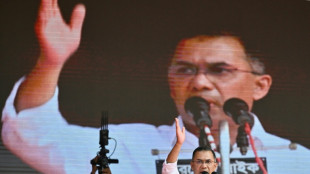
-
 Asian stocks track Wall St down but AI shift tempers losses
Asian stocks track Wall St down but AI shift tempers losses
-
Bangladesh's BNP claim 'sweeping' election win
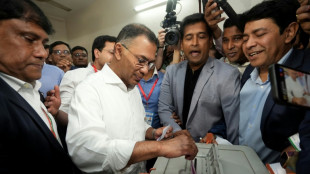
-
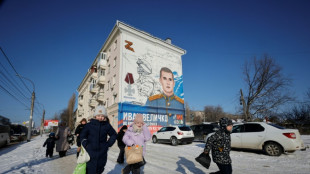 Drones, sirens, army posters: How four years of war changed a Russian city
Drones, sirens, army posters: How four years of war changed a Russian city
-
Crowds flock to Istanbul's Museum of Innocence before TV adaptation
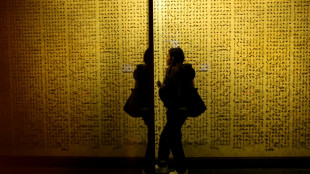
-
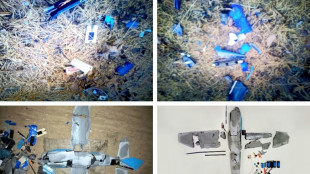 North Korea warns of 'terrible response' if South sends more drones
North Korea warns of 'terrible response' if South sends more drones
-
NASA crew set for flight to ISS
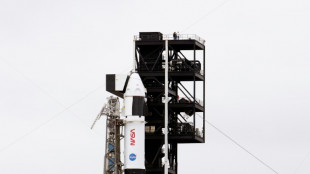
-
 'Punk wellness': China's stressed youth mix traditional medicine and cocktails
'Punk wellness': China's stressed youth mix traditional medicine and cocktails
-
Diplomacy, nukes and parades: what to watch at North Korea's next party congress
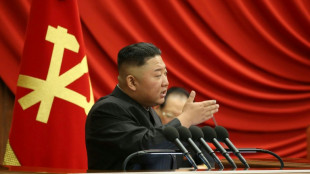
-
 Arsenal, Man City eye trophy haul, Macclesfield more FA Cup 'miracles'
Arsenal, Man City eye trophy haul, Macclesfield more FA Cup 'miracles'
-
Dreaming of glory at Rio's carnival, far from elite parades

-
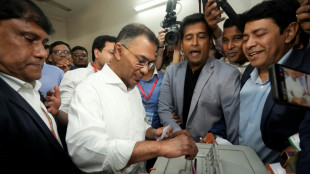 Bangladesh's BNP heading for 'sweeping' election win
Bangladesh's BNP heading for 'sweeping' election win
-
Hisatsune grabs Pebble Beach lead with sparkling 62

-
 Abasca Resources Announces Engagement of High Grade Mining Consulting Ltd. and Non-Brokered Private Placement of up to $3.0 Million
Abasca Resources Announces Engagement of High Grade Mining Consulting Ltd. and Non-Brokered Private Placement of up to $3.0 Million
-
Darrell Kelley and Business Partners to Visit Ghana for Humanitarian Engagement and Exploratory Discussions


Stench of death as Sudan army, paramilitaries battle for capital
In a war-ravaged neighbourhood of Sudan's capital Khartoum, the stench from a gaping sewage pit is unbearable as Red Crescent workers pull a bloated body from deep underground.
The volunteers say 14 more remain below.
"They were shot in the head, some have crushed skulls," Hisham Zein al-Abdeen, head of forensic medicine at Sudan's health ministry, told AFP at the scene.
The victims, he said, were either shot or beaten to death before being thrown in.
Behind him, a truck idles, its flatbed already filling with bodies retrieved from the sewer well in East Nile, an eastern district of Khartoum now reduced to ruins.
Nearly two years of war between the army and the paramilitary Rapid Support Forces (RSF) have left large swathes of the capital unrecognisable.
Once a bustling metropolis, Khartoum has seen well over 3.5 million of its people flee since the war began, according to the United Nations.
Millions more, unable or unwilling to leave, live among abandoned buildings, wrecked vehicles and what the army says are hidden mass graves.
- A city destroyed -
Since April 2023, the conflict has pitted army chief Abdel Fattah al-Burhan against his former deputy and RSF commander Mohamed Hamdan Daglo.
The war has left tens of thousands dead and uprooted more than 12 million, according to UN figures, with many living in makeshift camps and over 3.5 million fleeing across borders.
The RSF initially seized the streets of Khartoum, but in recent months, the army has clawed back territory, regaining control of Bahri -- also known as Khartoum North -- and East Nile to its east.
Now, less than a kilometre separates army units in central Khartoum from the presidential palace, overtaken by RSF troops at the start of the war.
Despite these advances, Daglo remains defiant, vowing that his forces will not withdraw from the capital.
"We will not leave the Republican Palace," Daglo said in a video address shared on Telegram.
"We are coming for Port Sudan," he added, referring to the de facto capital on the Red Sea, where the government has been based since Khartoum fell.
An AFP team, travelling under military escort, crossed from Khartoum's twin city of Omdurman -- recaptured by the army last year -- into Bahri and its war-ravaged outskirts.
The convoy passed through eerie, abandoned neighbourhoods including Al-Haj Yousif, where the skeletal remains of shuttered shops and crumbling pavements stretch along the streets.
Rubble, debris and discarded tires litter the roads.
Every few blocks, small clusters of people sit outside empty buildings and stores pockmarked with bullet holes.
Hospitals and schools no longer function. The army says it has uncovered multiple mass graves, including one at the Omdurman courthouse.
The civilians still in the city appear visibly shaken by the trauma of war.
"At night, I used to hear gunshots. Then, I saw them carrying bodies and throwing them in the well," said Salha Shams El-Din, who lives near the pit where she said RSF troops dumped bodies.
- Starvation -
For those who survived to see the army recapture the district early this month, life remains a constant struggle.
There is no electricity, and clean water and food are scarce.
On a quiet street in Bahri, some 40 women sit beneath a makeshift tent, preparing Ramadan meals at a community kitchen, one of many that struggled under RSF control.
They stir large pots of aseeda -- a thick porridge made from cornflour -- and lentils over open flames, using firewood.
Gas is no longer available. Water trucks now come from Omdurman, an improvement from when residents had to risk sniper fire just to reach the Nile River, itself a health risk with no sanitation.
The soup kitchens have become civilians' last line of defence against mass starvation, according to the UN. But throughout the war, they have struggled to stay afloat.
With roads cut off, markets devastated and RSF fighters robbing volunteers at gunpoint, feeding those in need was nearly impossible.
"When the RSF was here, we couldn't get money in. Any money we'd receive, they would take," said Mouayad al-Haj, a volunteer at the community kitchen in Bahri.
"Now things are different, phone networks are back and we can at least go to Omdurman every two weeks to buy supplies," he told AFP.
What began as a power struggle between Burhan and Daglo has spiralled into the world's largest displacement and hunger crisis.
The conflict has decimated Sudan's infrastructure, crumbled an already weak economy and pushed millions to the brink of mass starvation.
Famine has been declared in three displacement camps, according to the UN-backed Inegrated Food Security Phase Classification.
In Khartoum alone, at least 100,000 people are suffering famine conditions, the IPC found.
J.Oliveira--AMWN
